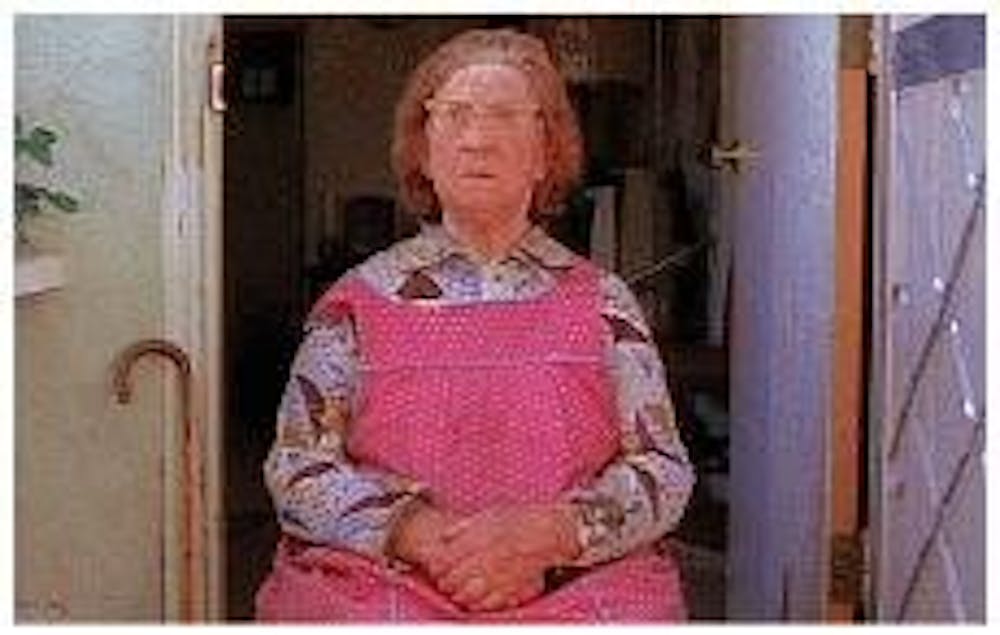Classic Flicks: Morris' Gates of Heaven

The pet funeral business gets serioius in Errol Morris' Gates of Heaven
German filmmaker Werner Herzog promised to eat his shoe if friend and fellow filmmaker Errol Morris were to complete his documentary on pet cemeteries and have it shown in theaters. Sure enough, Gates of Heaven - Morris' feature debut - was released in 1978, forcing Herzog to eat both his words and his shoe. Interested viewers can actually watch Herzog eat his shoe, boiled to perfection in garlic and herbs, in Les Blank's aptly named short, Werner Herzog Eats His Shoe. Gates of Heaven is a series of interviews centered on the shutdown of Floyd McClure's Foothill Pet Cemetery in Los Altos, Calif. and the subsequent transfer of the buried pets to Bubbling Well Pet Memorial Park in Napa Valley. The film is not narrated, and the story is told through the words of Morris' interviewees telling their pet stories. I never expected to find so much honest wisdom on life, eternity, love and death in the monologues of the pet cemetery owners, pet owners and pet lovers. Humor, philosophy and irony support Morris' film throughout - to say that Gates of Heaven is a movie about pet cemeteries is to misunderstand Morris' work. Great works of art begin with the specific and end in the realm of universal truths.
In spite of Morris' seemingly grim material, I believe that pet lovers will actually enjoy this film. But I will issue this warning: If you are a pet owner (or a human being with a pulse) you may cry while watching this movie. If you are a former pet owner, you will have finished a box of Kleenexes by the end of the film.
Morris' ear for the poetic in common speech allows him to assemble interviews in such a way that his nonfictional documentaries always seem to have the thread of a story running through them. His subjects feel so real because they are. The characters are not made up, nor are they reading from a script - these men and women are real and exist in the flesh. They are not forced to talk but are compelled to. One bereaved dog owner remarks, "There's your dog; your dog's dead. But where's the thing that made it move? It had to be something, didn't it?" Now there's a statement that would make Plato weep.
Morris, instead of conducting face-to-face interviews, uses the Interrotron, a device which projects the image of his face onto the camera. He is able to extract such moving performances - if one might call them performances - from his subjects. He rarely intrudes into his films. Morris understands the primal human need to express oneself and to be heard, saying: "The element of spontaneity is not knowing what someone is going to say to me in front of the camera, having really no idea, of being surprised. I know that there's this moment in all of the interviews that I've loved where something happens. I had this three-minute rule that if you just shut up and let someone talk, within three minutes they will show you how crazy they really are."
Morris seeks life and truth in his subjects. As such, he is one of the few documentary filmmakers who can bring an audience to tears. Audiences' traditional apathy toward the documentary film is a cultural sickness that can be easily remedied by watching Morris' films.
Author's note: Pet- and film-lovers: If you are in the mood for a moving arthouse film about a man and his dog, I recommend seeing Fellini's 1952 film Umberto D.
Joseph Allencherril is a Will Rice College sophomore. Classic Flicks is a column rediscovering the best films that cinema has to offer.
More from The Rice Thresher

Over 1,000 students petition against new meal plan
When Konstantin Savvon opened the Housing and Dining email announcing the new unlimited meal plan, he was instantly concerned about the impact on off-campus students like himself.

Rice football wins season opener under new coach
For the first time since 2018, Rice football opened its season with a victory. Scott Abell was soaked with yellow Powerade following a 14-12 win on the road Saturday against the University of Louisiana at Lafayette, which won 10 games and made it to the Sun Belt Conference championship last season.

Acting like an athlete: Rice basketball alum takes on Broadway
Underneath Chadd Alexander’s Broadway costume, there’s ankle tape and wrist braces — same protective gear he wore as a walk-on basketball player at Rice, though now he’s performing eight shows a week in the ensemble of “Harry Potter and the Cursed Child” instead of running conditioning drills in Tudor Fieldhouse.

Please note All comments are eligible for publication by The Rice Thresher.